Qingnan Sun
A dual mode adaptive basal-bolus advisor based on reinforcement learning
Jan 07, 2019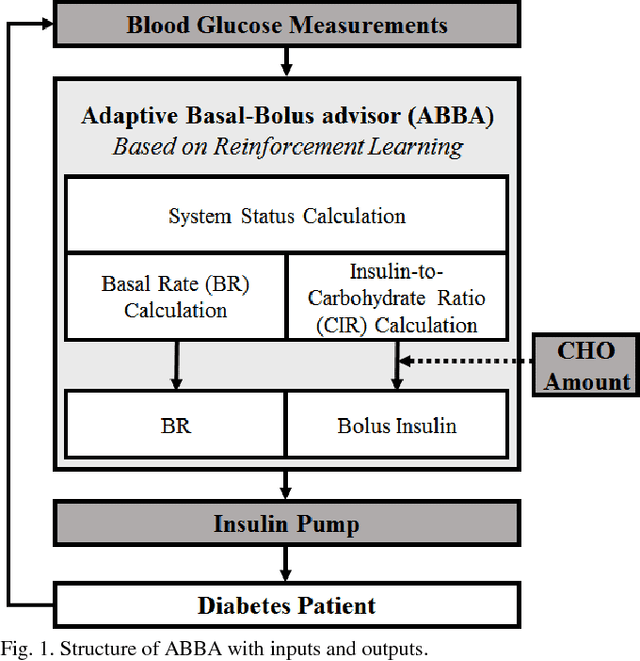
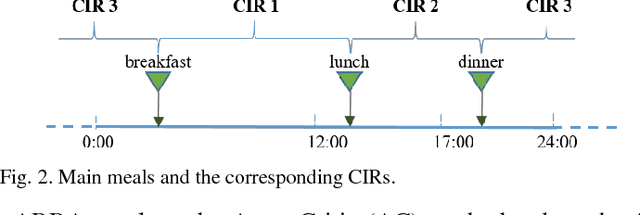
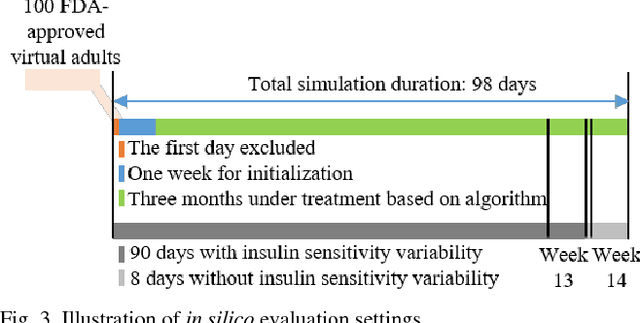
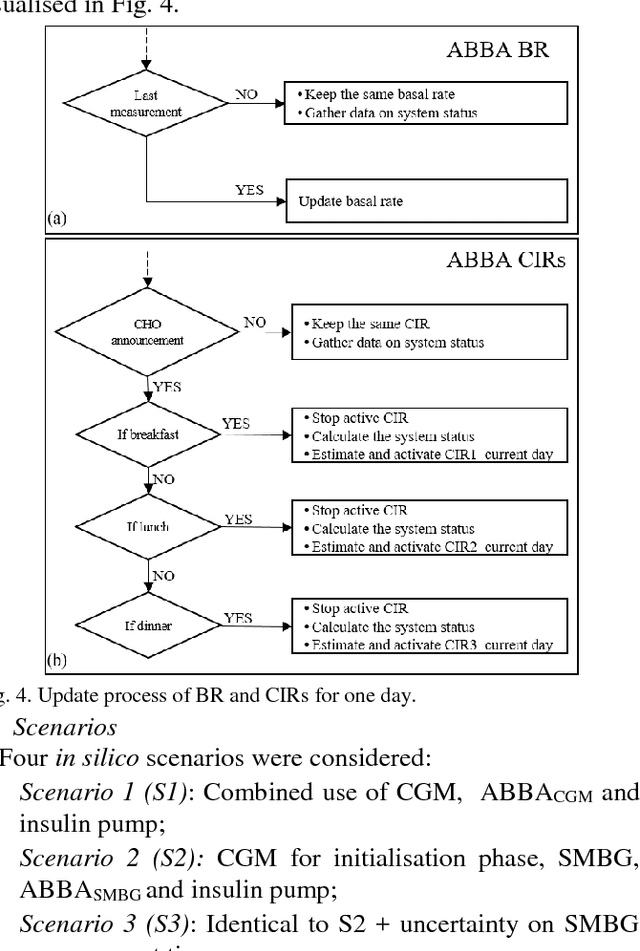
Abstract:Self-monitoring of blood glucose (SMBG) and continuous glucose monitoring (CGM) are commonly used by type 1 diabetes (T1D) patients to measure glucose concentrations. The proposed adaptive basal-bolus algorithm (ABBA) supports inputs from either SMBG or CGM devices to provide personalised suggestions for the daily basal rate and prandial insulin doses on the basis of the patients' glucose level on the previous day. The ABBA is based on reinforcement learning (RL), a type of artificial intelligence, and was validated in silico with an FDA-accepted population of 100 adults under different realistic scenarios lasting three simulated months. The scenarios involve three main meals and one bedtime snack per day, along with different variabilities and uncertainties for insulin sensitivity, mealtime, carbohydrate amount, and glucose measurement time. The results indicate that the proposed approach achieves comparable performance with CGM or SMBG as input signals, without influencing the total daily insulin dose. The results are a promising indication that AI algorithmic approaches can provide personalised adaptive insulin optimisation and achieve glucose control - independently of the type of glucose monitoring technology.
Predicting Blood Glucose with an LSTM and Bi-LSTM Based Deep Neural Network
Sep 11, 2018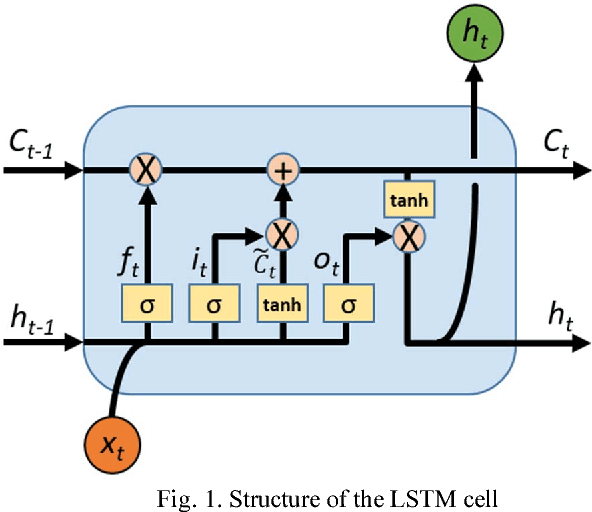
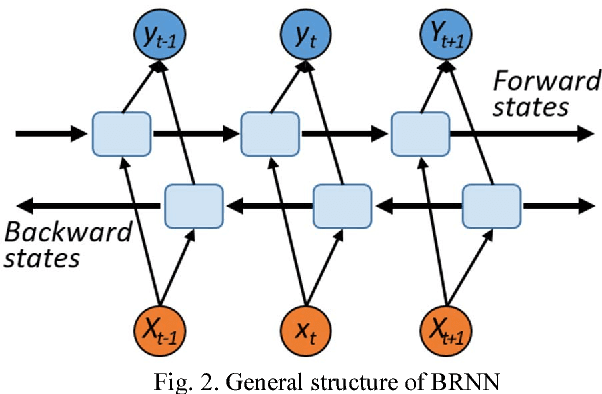
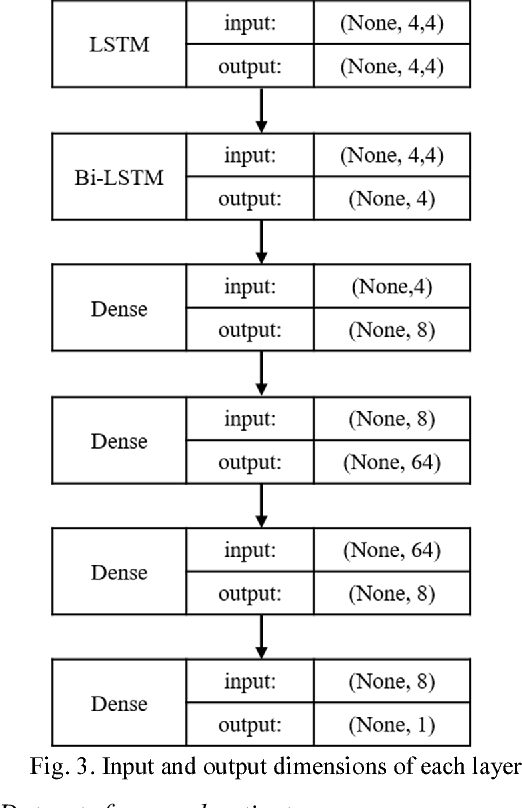
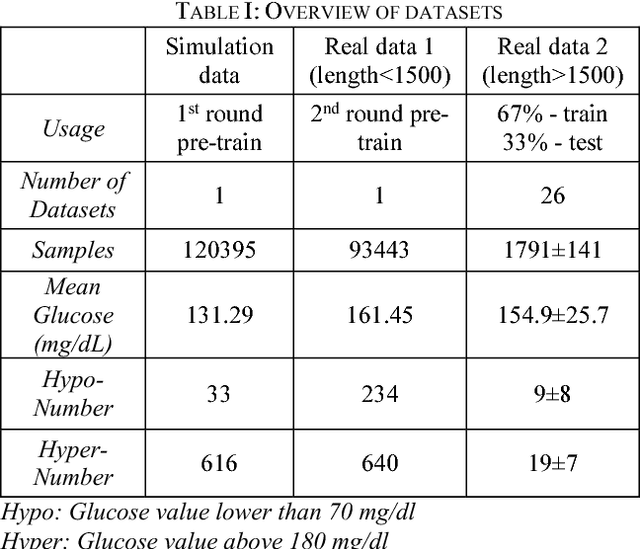
Abstract:A deep learning network was used to predict future blood glucose levels, as this can permit diabetes patients to take action before imminent hyperglycaemia and hypoglycaemia. A sequential model with one long-short-term memory (LSTM) layer, one bidirectional LSTM layer and several fully connected layers was used to predict blood glucose levels for different prediction horizons. The method was trained and tested on 26 datasets from 20 real patients. The proposed network outperforms the baseline methods in terms of all evaluation criteria.
 Add to Chrome
Add to Chrome Add to Firefox
Add to Firefox Add to Edge
Add to Edge